During the week of the IAEA’s International Conference on Nuclear Security (ICONS) 2024, several WINS Academy Ambassadors participated in and contributed to the week-long event. Their participation at ICONS 2024 underscores the significance of Ambassadors to WINS’ programme of work, to the international nuclear security community and to the future of nuclear security.
Academy Ambassadors’ Participation at WINS’ Side Events
First, the Academy Ambassadors were active in both of WINS’ side events, helping to bring a unique perspective to topics vital to the future of nuclear security: the Next Generation of Nuclear Security Professionals Networking Event, as well as the panel on how Gender Equality, Diversity and Inclusion is Shaping the Future.

During the networking event designed for the next generation of nuclear security professionals, Ms Mercy Muriithi, Academy Ambassador and Nuclear Inspector at the Kenyan Nuclear Regulatory Authority, spoke as part of opening remarks and welcomed guests to the event.
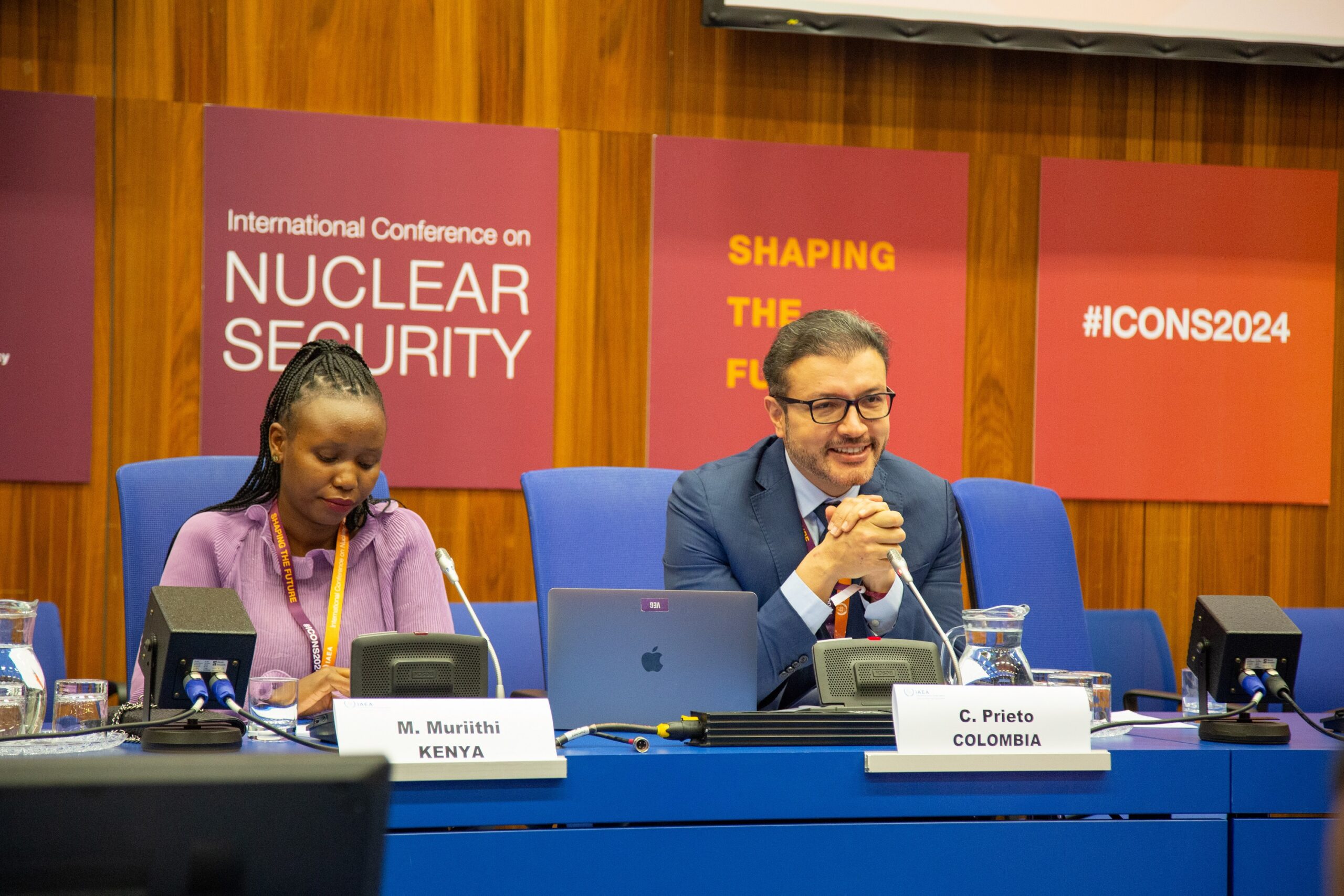
Ms Muriithi also spoke on a panel for WINS’ second side event at ICONS, which looked at how gender diversity, equality and inclusion is shaping the future of nuclear security. She discussed her experience of using the knowledge gained at the WINS Academy as a way to enter the nuclear security field. Also on the panel was fellow Academy Ambassador Camilo Prieto Valderrama, Professor of Climate Change and Environmental Health at the School of Engineering at Pontificia Universidad Javeriana, who talked about innovative solutions to engaging and speaking with the younger generation in local communities about the benefits of nuclear energy and applications.
Regarding the experience of speaking on the panel, Mr Valderrama remarked, “The opportunity to share with young professionals from different regions of the world was very enriching. For me, it was very important to be able to discuss the difficulties and inequalities that exist in some regions of Colombia, such as the Guajira Peninsula. With Javeriana University, we have raised the future possibility of implementing a small modular reactor in this area, to provide energy and drinking water for the communities. One of the great challenges for my country is developing a solid nuclear security policy: the armed conflict we are experiencing is an impediment to advancing nuclear technologies. I greatly value the opportunity that WINS provides Academy Ambassadors to improve our knowledge and level of discussion.”
Academy Ambassadors’ Presentations and Participation at ICONS
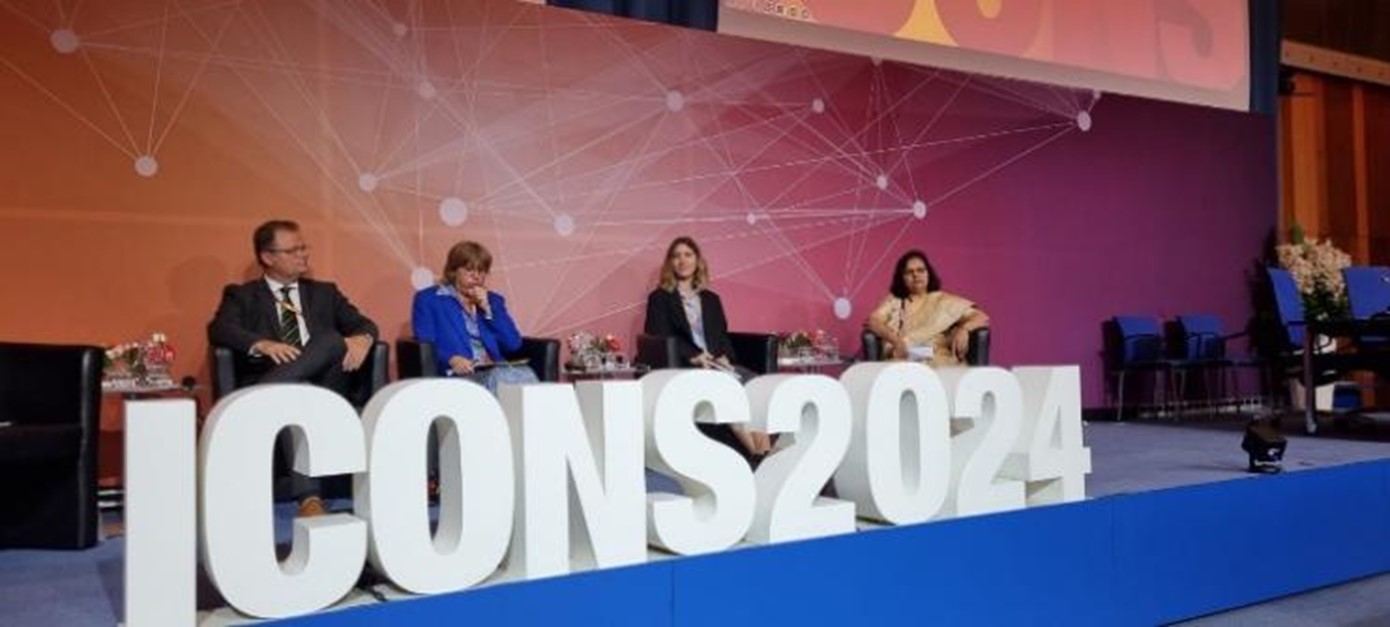
Aligning with the theme of this year’s ICONS, Dr Alpana Goel, Director of Amity Institute of Nuclear Science and Technology, participated in the plenary session “Shaping the Future: Retaining and Developing the Nuclear Security Workforce of Tomorrow.” On the panel was also Lars van Dassen, Executive Director of WINS. Dr Goel also presented two papers at the conference. The first was “Imbibe the Concept of Nuclear Safety and Security With The Aid Of Capacity Development Programs: A Case Study Of Amity Institute of Nuclear Science and Technology” and the second was entitled “International Nuclear Security Education Network (INSEN): Building Capacity for Youths in Nuclear Security.”
Camila Araujo, CEO of Maxim Group, presented a paper she cowrote on a pioneering project between the Maxim Group and the US National Nuclear Security Administration, aiming to implement the Mobile Source Transit Security system in Brazil to track and monitor mobile radioactive sources. The name of the paper was entitled “Challenges and Innovation in Mobile Tracking of Radioactive Sources in Brazil: A Pioneering Experience in Security Implementation.”
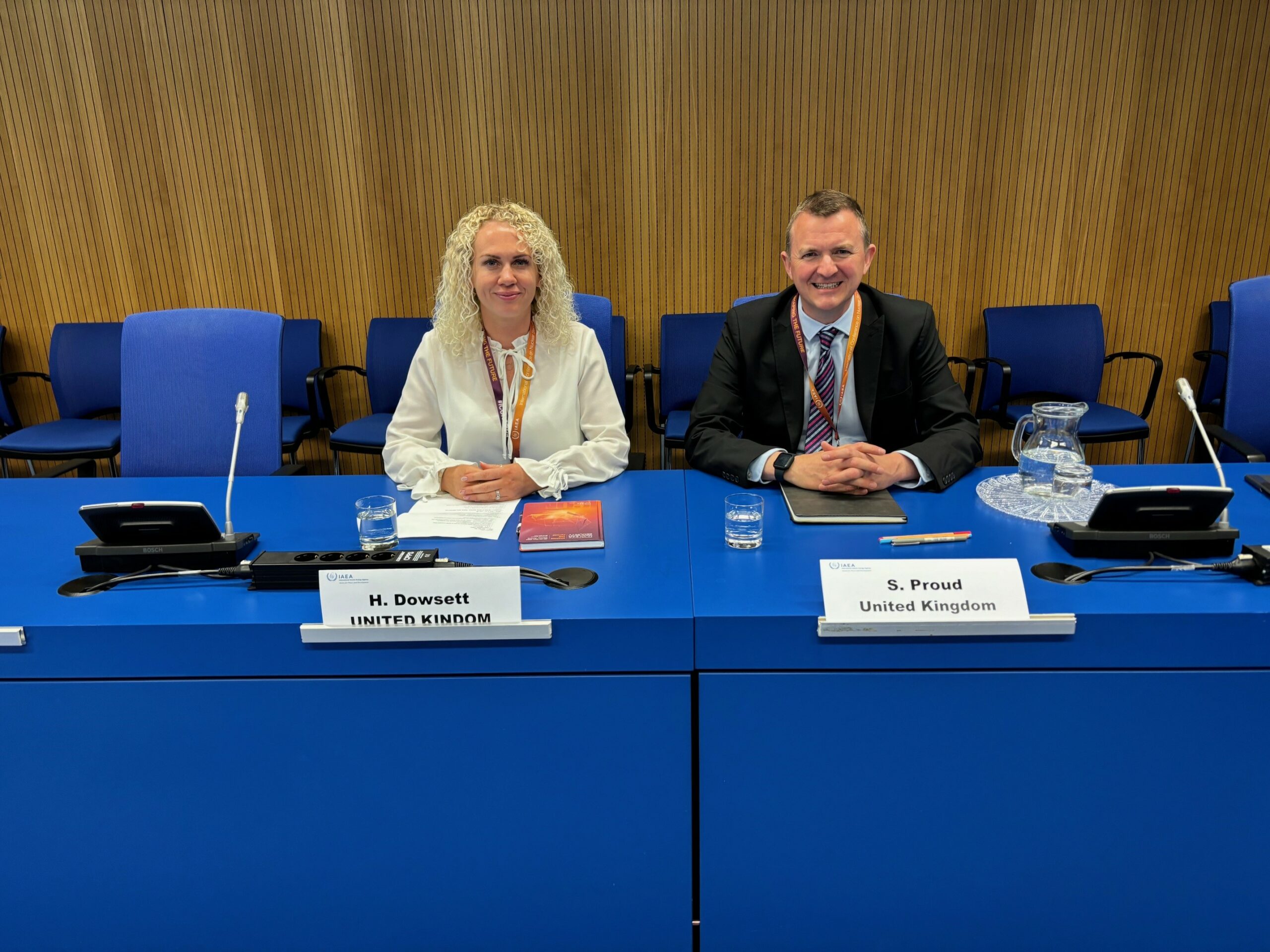
Hayleigh Dowsett, Senior Security Consultant for the UK’s National Nuclear Laboratory, spoke about “Secure by Design” to highlight the benefits of creating an organisational culture that fosters critical thinking and encourages personnel to evaluate different perspectives. According to Ms Dowsett, “My main objective was to inspire security practitioners to communicate in a way that is honest and authentic so we can demystify security, as this will improve collaboration cross-industry, empower personnel to challenge and ask ‘why’, leading to a transition from retro-thinking security to being secure by design.”
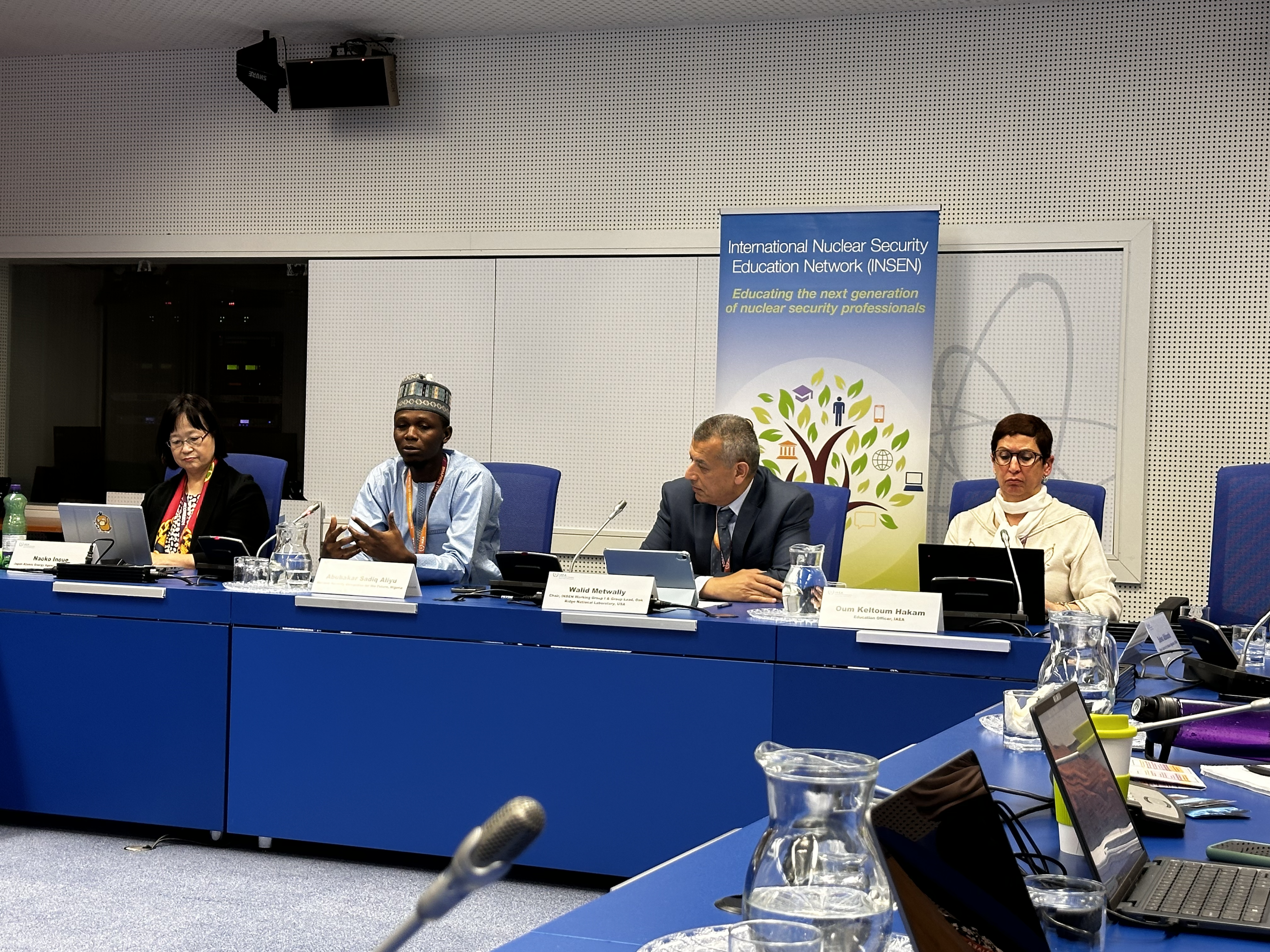
Abubakar Sadiq Aliyu, Founder and Director of Nuclear Advocacy Network, was part of the IAEA’s Nuclear Security Delegation for the Future, a select IAEA programme that seeks to identify future leaders and the next generation of nuclear security specialists. In addition to being part of the Delegation for the Future, Mr Aliyu also spoke as a panellist as part of the side event entitled “Educating the Next Generation of Nuclear Security Professionals to Meet Future Global Demands.”
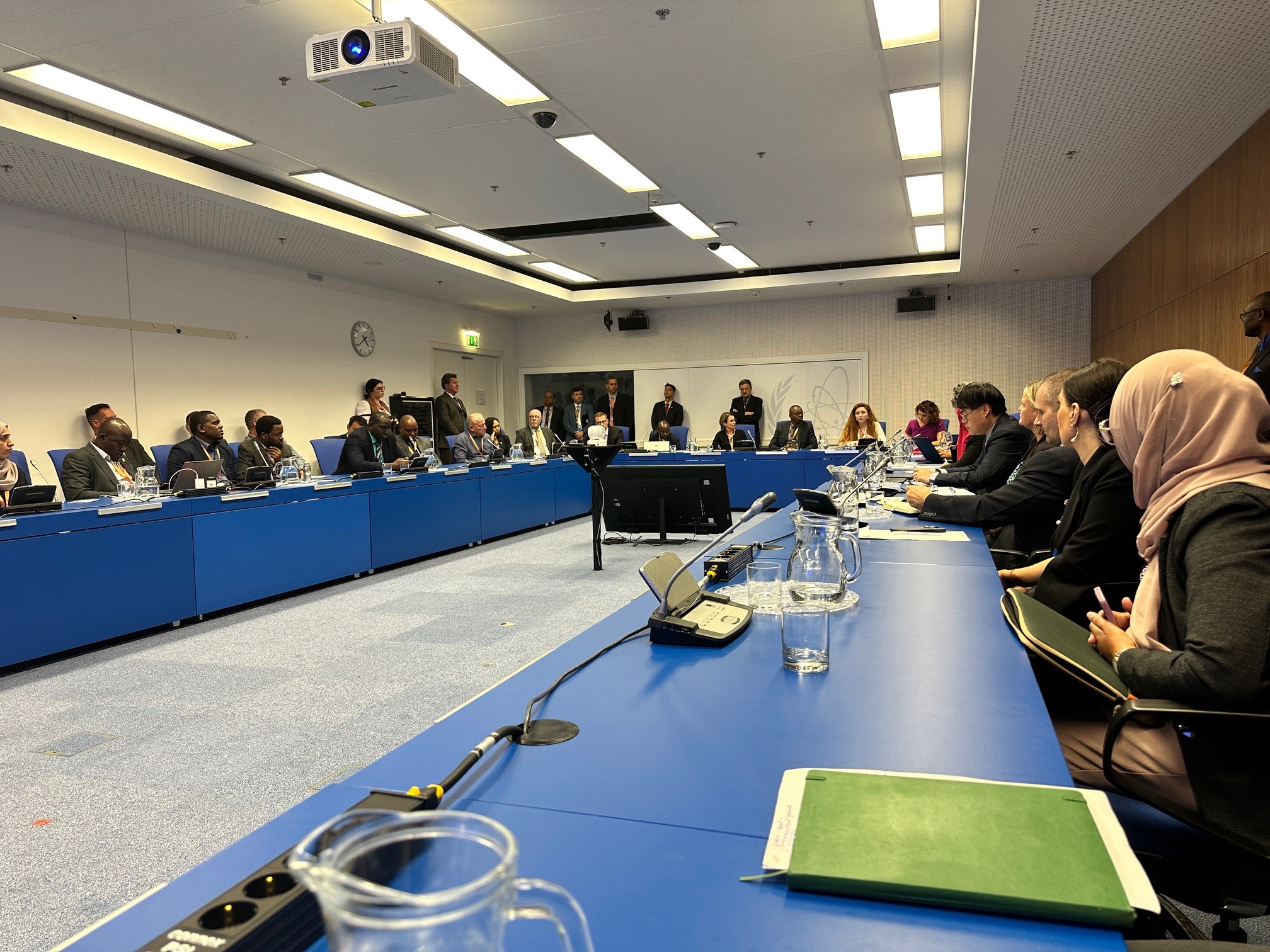
Ina Grigalashvili, International Project Manager at the Agency of Nuclear and Radiation Safety – Regulatory Authority of Georgia, participated in the side event entitled “Needs Assessment Comes First: the IAEA’s Optimized Approach to Strengthening Nuclear Security.” During the side event, she presented on the Georgian perspective and experience and detailed how the Integrated Nuclear Security Sustainability Plan (INSSP) constitutes the overarching framework under which outcomes of nuclear security peer reviews (IPPAS, INSServ) and advisory services (RISS) are translated into actionable nuclear security programmes in Georgia.


